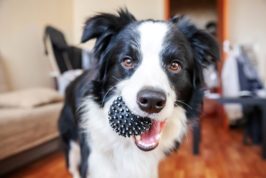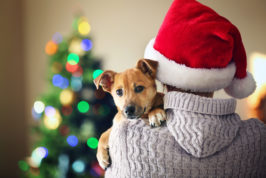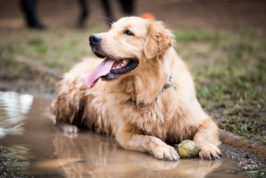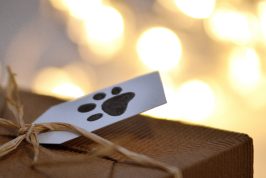Your pet’s first winter: 10 ways to keep them safe
Winter is coming, and it’s important to prepare your new puppy or kitten for the cold weather that comes with it. Especially if it’s their first winter. To help your new family member face the freezing temperatures, you’ll need to be armed with the right tools, accessories and advice. That’s where we come in. These frosty tips will help to get you prepared and ready to protect your pet…
Does the cold weather affect your pet?
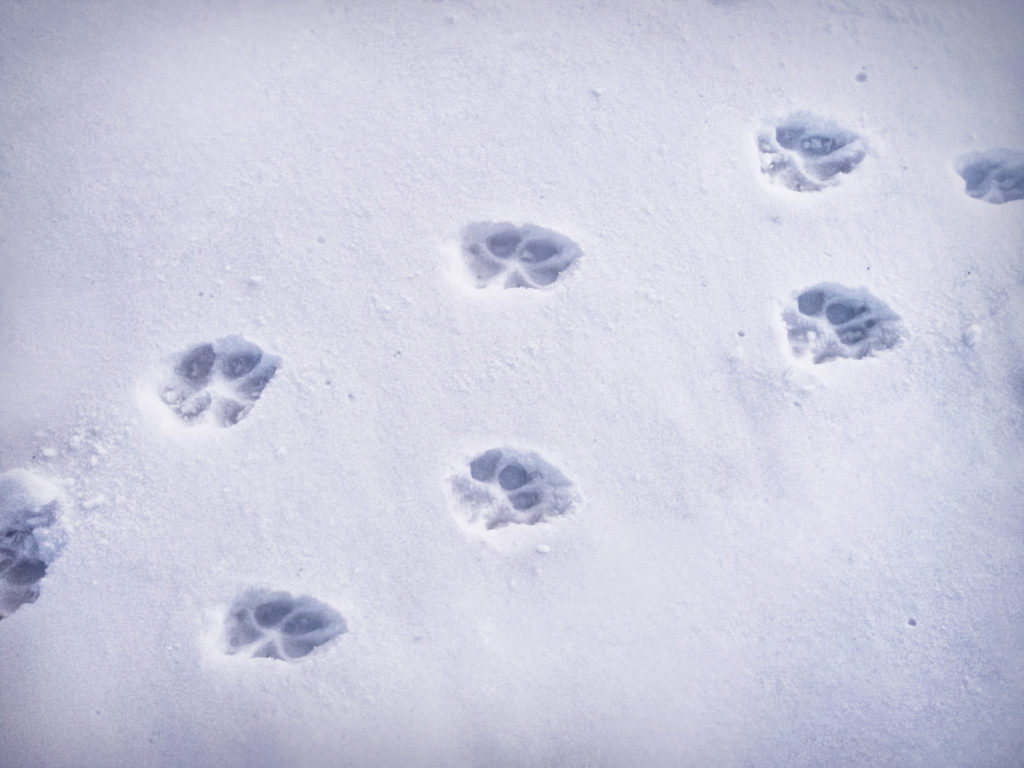
Just like us, cats and dogs are warm-blooded, and are able to regulate their body temperature. This means they’re usually much warmer than their surroundings. And some breeds love the chilliness – think Huskies, St. Bernards and Maine Coon cats. But certain cats and dogs are more affected by the cold than others – especially if they’re small or short-haired.
“Puppies and kittens are well-adapted for cold weather, but when the temperature drops, they can be susceptible to hypothermia and frostbite.”
Did you know that your young pet can’t keep themselves warm until they’re two weeks old? Plus, they’re more prone to feeling chilly as they don’t have the same amount of muscles or fat as adult animals do.
How to tell if your puppy or kitten is cold
Concerned your pet is too cold? Check out the warning signs below:
- Shivering or shaking
- A tucked tail and curling up into a ball
- Excessive whining, meowing or barking
- A change in behaviour (such as appearing anxious or uncomfortable)
- Sleeping near heat sources – for instance, radiators or water pipes
10 ways to keep your puppy or kitten safe this winter
1. Make them comfy
We humans can tolerate colder temperatures more capably than our pets. Plus, we’re armed with plush pyjamas and bundles of blankets to keep us warm. But puppies and kittens don’t have the same luxuries. That’s why comfy, warm bedding is the biggest must-have winter item for your pet. You should also provide a blanket or two (or three) to keep your youngster warm.
Make sure their bed is big enough for them to stretch out in, but also cosy enough to curl up in. We recommend keeping their bed or crate away from doors, windows or any place that’s prone to draughts. Your kitten is likely to spend a lot of time near a radiator – cats love the warmth. In fact, they love it so much they don’t know when to move away, and can become at risk of overheating. You shouldn’t let your cat snooze directly on the radiator. Instead, use a radiator cover or a radiator cat bed instead.
2. Go for walkies in daylight

Ok, so this one is only really applicable to puppies. But when the sun is at its highest and brightest – think late morning or early afternoon – it’s generally warmer, so your dog is less likely to get cold. Because most puppies are quite small, it might be best to invest in a good-quality dog coat to keep them warm. Look for one that’s waterproof and doesn’t restrict their movement. And only make your dog wear one if they’re comfortable with it.
It’s especially important in winter to make sure your pet (dog and cat) is wearing an ID tag engraved with their name and your phone number, just in case. Plus, attaching a bell to your pet’s collar can help you keep track of them in the rain, fog or snow. It also helps to alert other walkers or cyclists of your pet’s presence.
3. Keep your outside cat cosy
You might not be able to stop your kitten from exploring the outside world during winter. But there are some things you can do to keep them cosy even if they’re out in the cold:
- Provide an outdoor shelter for your cat to curl up in. This way, they can still venture into the wild, but also have somewhere safe to relax. Cover a sturdy cardboard box in plastic sheeting to protect it from the rain, and place it somewhere high if you can.
- Defrost your cat flap regularly. Heavy snow or ice might block exit (or entry) to your home.
- Provide plenty of fresh water indoors. If you have a water bowl outside, check it frequently to make sure it hasn’t frozen over.
- Always make sure your kitten has returned home at night. It’s important to remember this one, as sleeping outside in freezing temperatures can cause serious harm.
- Make sure they’re microchipped. And ensure everything’s up to date. This way, they can easily be traced back to you if they go off searching for somewhere warm.
4. Make some changes to their diet
Most puppies and kittens will sleep more and exercise less during winter. This increases their risk of becoming overweight. Keep a close eye on your pet, and make sure you monitor their portion size if necessary. The general rule of thumb is to decrease the amount of food if they’re exercising less, or increase their food if they’re using extra energy to keep warm.
What’s more, a multivitamin supplement – especially one that’s enriched with B Vitamins, Glucosamine and Omega-3 fatty acids – can help to give your puppy or kitten a natural boost during winter. Find out more about YuCARE MultiVits from the same team behind the UK’s number one veterinary joint supplement brand YuMOVE.
5. Watch out for toxic treats

As the weather gets colder, we tend to eat more. Especially around the festive season. But lots of the stuff we eat is actually harmful for our cats and dogs. Keep an eye out for these tempting treats which are poisonous to pets:
- Chocolate
- Nuts
- Anything that contains currants, sultanas or raisins – including mince pies and Christmas pudding
- Artificial sweeteners – such as xylitol
- Anything that contains onions, garlic or chives – like the stuffing on your Christmas plate
- Alcohol
6. Don’t give up grooming
Although your puppy doesn’t need a haircut when it’s cold outside, you should still look after their coat. Regular brushing will stop their fur getting matted or untidy. A well-groomed coat is much more effective at protecting your dog from the cold.
In general, cats do a good job of grooming themselves (and each other if you have more than one cat). But your kitten might need a helping paw to keep their coat in check during winter. Regular brushing with a suitable comb will remove loose fur and prevent matting.
Keeping your home warm is a must. But did you know that your radiator can dehydrate your pet’s skin? That’s because the artificial heat reduces the amount of moisture in the air. Skincare supplements can help keep their skin healthy all winter long.
7. Avoid freezing temperatures
If the weather outside is frightful, keep your outdoor cat inside. Even if they seem annoyed, bored or restless, cats aren’t used to the intense cold. Instead, keep them entertained with toys and treats. The same goes for puppies. If it’s too cold for you, it’s too cold for them. Keep your walkies short and sweet, and burn off your puppy’s extra energy with some at-home exercises.
After a winter’s walk or a snowy adventure, make sure you properly wipe down your cat or dog. Clean their paws, legs and tummy to prevent dampness, remove grit and to warm them up. The grit on the pavements and roads can really irritate their little paws.
8. Look after their paws

Speaking of paws, your pet’s feet can easily dry out. Cold air, artificial heat, snow and grit can all cause dry and cracked paws. Your pet’s paws are kind of like our lips, except they walk on them! That’s why it’s so important to regularly check their feet and keep them moisturised and healthy. A paw balm for pets can help to keep their feet waterproof and smooth.
9. The dangers of decoration
Winter means Christmas. And Christmas means lots of dazzling decorations. This festive decor can pose a potential hazard to kittens and puppies – especially if they’re curious. Here are a few of the biggest things to look out for:
Sharp leaves and pine needles can get stuck in your pet’s coat or paws. Plus, real trees sometimes release a toxic sap – which, unfortunately, is irresistible to dogs and cats.
Create stylish call-to-action buttons with Qubely Buttons. Play around with typography, design, border and more. Add animations and personalize it to engage visitors instantly.If eaten, the plastic from artificial trees can cause serious digestive damage.
Flashing lights often look tempting in the eyes of our pets, and they can cause blockages if swallowed and possible electrocution if bitten through.
There’s no need to cut out all baubles at Christmas, but try to opt for plastic ones if you can. Or keep the glass ones out of your pet’s reach – broken glass can get stuck in paws and can cause serious damage if eaten.
Keep all presents away from your pets. Aside from destroyed gifts, the wrapping paper doesn’t do their stomachs any good!
Tinsel can also cause some serious tummy upsets. It’s made from covered metal wire and can disturb your cat or dog’s digestion if chewed or swallowed.
Throughout the Christmas season, we tend to bring many different plants into our houses. But some festive foliage is unsafe for your pets – such as the berries on holly, the spiky leaves and berries of mistletoe, poinsettias, ivy and potpourri.
Discover more indoor plants that are toxic for dogs and cats.
10. Keep the de-icer out of reach
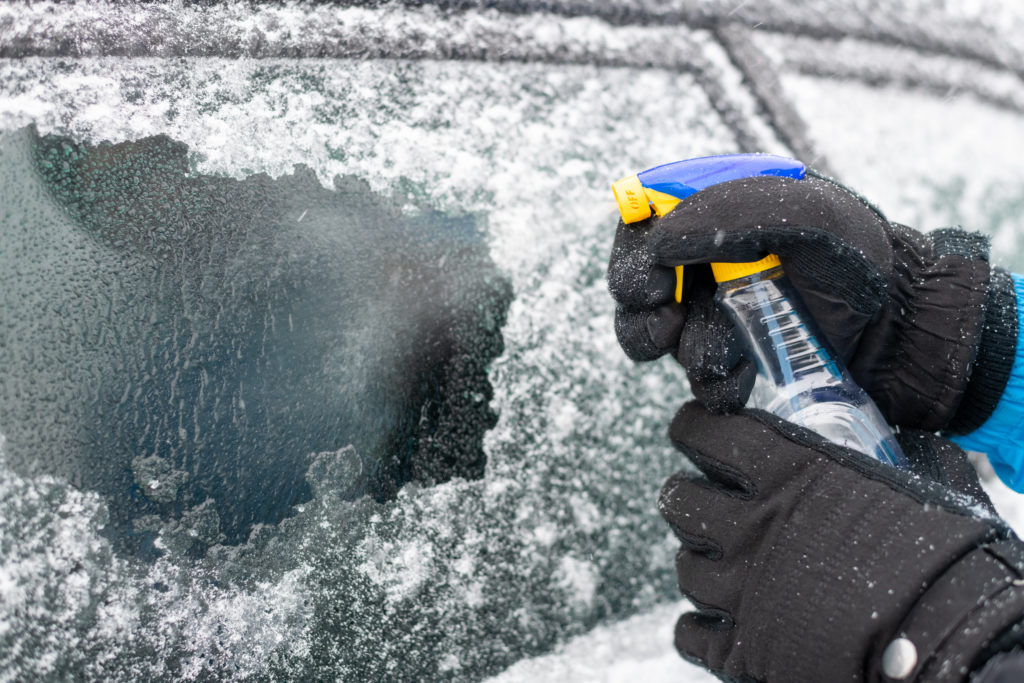
Antifreeze is very dangerous for both dogs and cats. That’s because it contains toxins like ethylene glycol and methanol. The worst part? Its sweet taste is irresistible to pets. Even if your puppy or kitten only licks a small amount, it can cause damage to their kidneys and liver, and can be deadly in the absolute worst cases. And the signs of antifreeze poisoning often takes a couple of days to show, which can sometimes be too late.
Summary
Winter can be hard for kittens and puppies, especially when it’s their first one! But by keeping them warm and safe, they’ll be absolutely fine throughout the colder months. Make sure you follow our helpful hints to have a safe, healthy and active winter with your new furry family member

